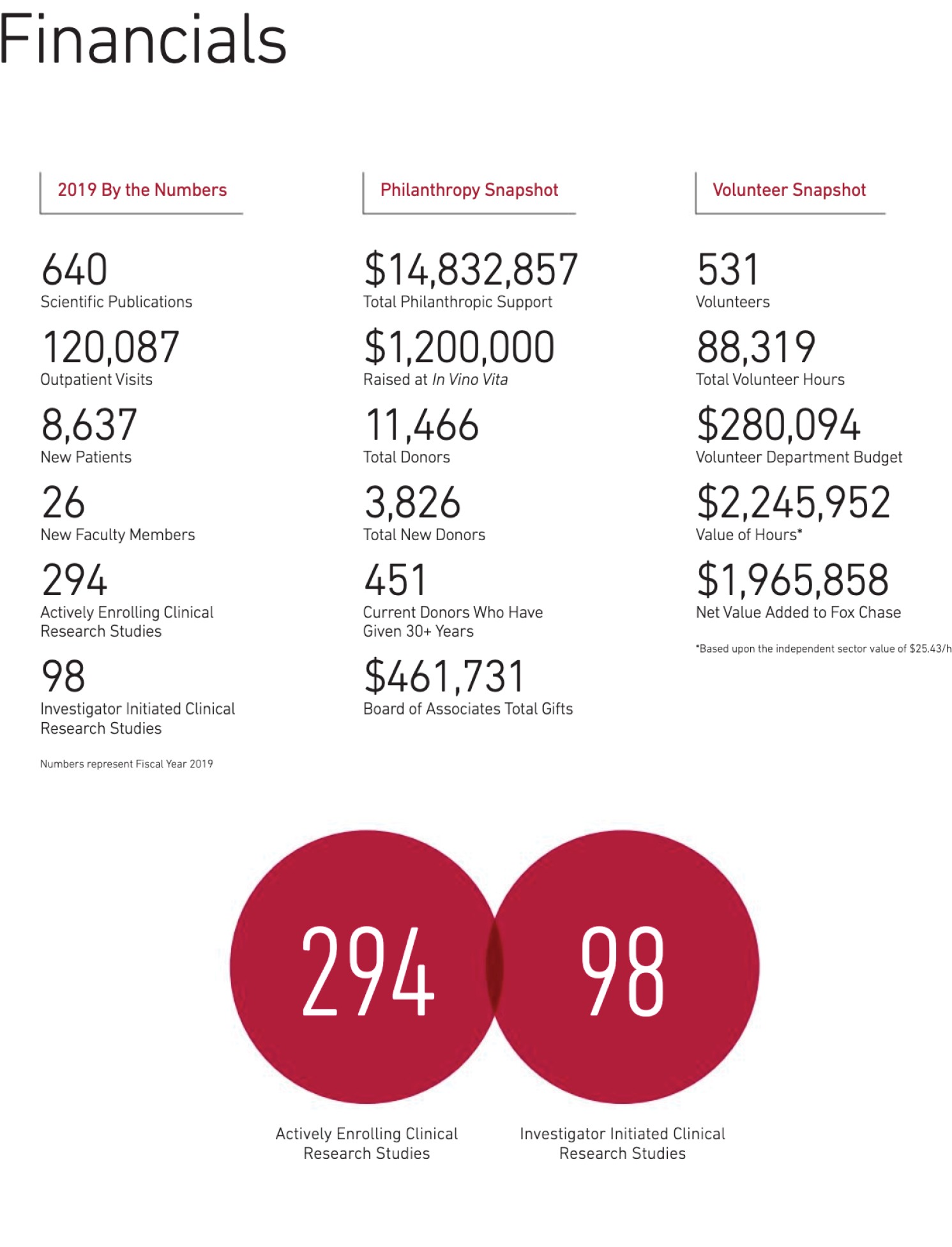This story is part of The Cancer Letter’s ongoing coverage of COVID-19’s impact on oncology. A full list of our coverage, as well as the latest meeting cancellations, is available here.
The deal is off: Fox Chase Cancer Center will not be sold to Thomas Jefferson University.
After 15 months of due diligence and a “binding definitive agreement” announced in December 2019, Jefferson and Temple University, which owns Fox Chase, have ended negotiations of the acquisition, citing financial pressures from the COVID-19 pandemic.
On May 5, Jefferson and Temple issued a brief joint press release, declining to answer further questions.
“This transaction is the latest casualty of COVID-19,” Stephen K. Klasko, president of Thomas Jefferson University and CEO of Jefferson Health, said in the joint statement. “Because of the tremendous impact that the virus has had on our operations, Jefferson must focus entirely on providing patient care and safety, student education and safety, and for the well-being of our dedicated employees.”
The sale would have been the first of its kind. No cancer center carrying an NCI designation has ever been sold on the open market (The Cancer Letter, Jan 18, Dec. 20, 2019).


Fox Chase has a Comprehensive Cancer Center designation from NCI. Jefferson has a Cancer Center designation. Fox Chase is also one of the 11 “dedicated cancer centers,” a group of freestanding institutions that treat cancer and no other disease. These centers are exempt from being reimbursed based on DRGs, or Diagnosis-Related Groups, under the Prospective Payment System.
As a unit of Temple, Fox Chase doesn’t file separate tax documents. However, the venerable cancer center’s at-a-glance table posted on its website as part of the annual report shows that the center was operating in the black through 2019. It’s unclear how these data are separated from Temple’s financials and it’s not publicly known what the Fox Chase balance sheet looked like in the first quarter of 2020.




Announcing the termination of the deal, Temple President Richard M. Englert also cited the coronavirus: “There is no question that but for the catastrophic economic impact of the virus, both institutions were prepared to move forward to complete this transaction. We fully understand and accept this reality, and we look forward to identifying new ways for our institutions to work together in the future to better serve our community.”
The announcement is all the more surprising, because late last year the two parties announced a “binding definitive agreement” for Jefferson’s acquisition of Fox Chase Cancer Center, Temple’s Bone Marrow Transplant Program and transition of Temple’s membership interest in Health Partners Plans, a Philadelphia-based managed care program, to Jefferson.
The announcement mentioned that the deal was contingent on “closing conditions,” but didn’t include a closing date for the transition. Presumably, this back-door clause has been used to end the deal.
Last December’s agreement opened the door for the leadership of Fox Chase and Jefferson’s Sidney Kimmel Cancer Center to discuss integration of the two NCI-designated cancer centers.
Outside observers wondered about the logistics:
What will be the name of the integrated entity?
Will PIs from both institutions with similar federal grants be able to retain their funding?
How would the acquisition of Fox Chase alter Jefferson’s catchment and service areas?
Will there be changes in staffing? Are employee benefits going to change?
Temple and Jefferson focused on each other as merger partners following discussion with other parties. Now that the deal is off, it’s unclear whether these negotiations will resume in the midst of the pandemic that has diminished the resources of potential suitors.
Fox Chase is a multi-site NCI-designated comprehensive cancer center that employs over 2,312 people. In fiscal year 2019, it reported having 8,637 new patients and had clinical revenues of $456.7 million and clinical expenses of $424.5 million. There were 283 research projects with total costs of $55.3 million, and philanthropy brought in $14.8 million. The number of indexed patients—those whose tumors are in the registry—was 3,947 in fiscal 2019.
Fox Chase was sold to Temple in 2012 for $84 million. The cancer center was in financial distress at that time, and this was more of a rescue than a sale. Multiple bids were not formally sought at that time.
The announcement of the end of negotiations over Fox Chase makes no mention of the sale of Temple’s interest in Health Partners Plans.
The focus of Health Partners is a great deal broader than cancer. Tax documents show that in 2017, the most recent year for which financials are available, the health plan had about $1.89 billion in revenues, nearly five-fold the revenues posted by Fox Chase. Revenues minus expenses were at $11 million. Most of this is a pass-through of federal and state funds.
Until recently, Health Partners was owned by three health systems: Aria, Einstein and Temple. Aria and Einstein have been acquired by the Jefferson system, which leaves only Temple’s stake outside Jefferson’s control.
The Health Partners acquisition would plunge Jefferson into a tough business. Health insurance insiders say that administering Medicare Advantage programs—which now enroll a bit more than a third of Medicare recipients nationwide—can make for a solid commercial endeavor.
This is because people who sign up for Advantage plans stay for at least six years, which makes it possible to improve their health, thereby taming expenses. State-run Medicaid—which, according to the Health Partner tax filings, represents the vast majority of the plan’s enrollees—presents a bigger challenge.
Medicaid patients tend to stay in such plans for a short time—often less than a year. There is a lot of mental illness within the Medicaid population, and the opportunities to realize savings by improving health are much lower than in the Medicare Advantage populations.










